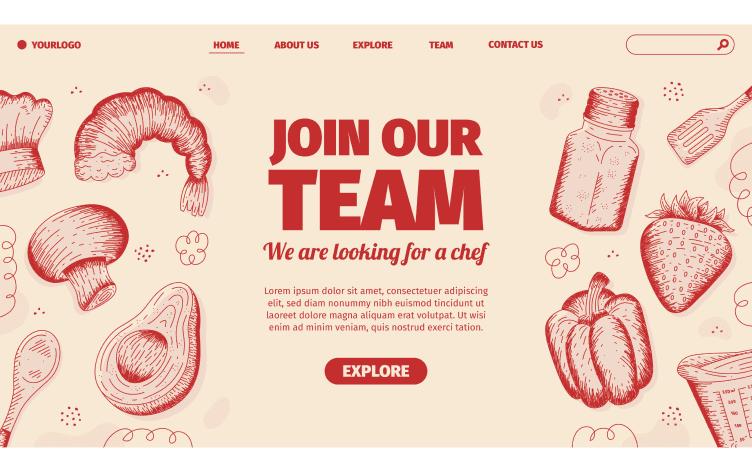
How To Make an ATS-Friendly Resume That Works
Wondering if you have an ATS-Friendly Resume? Follow our guide to optimize your resume for applicant tracking systems and secure your next job.

Regardless of your company size, or industry, different ATS types can help you accelerate your organization’s hiring efforts by streamlining the recruitment process and improving candidate tracking. By selecting the right ATS for your goals, you can enhance efficiency and ensure the best-fit hires in less time. With a market size expected to reach over USD 26 billion by 2030, there’s no limit to the different types of applicant tracking systems available. Different providers are best suited to certain industries and organizational needs, whether it's high-volume hiring or managing the end-to-end process with limited internal resources.

The types of ATS platforms tailored to small businesses and start-ups can help attract applicants, assist companies to do more with fewer resources, and engage internal stakeholders effectively in their high-growth and scaling strategies.
Common features like job board integration and posting, automated resume parsing/pre-screening, and timely candidate communications allow smaller teams to hire faster with fewer resources. These features also help teams manage the hiring process in place of a formal HR department.
The best platforms for start-ups facilitate:
Strong team collaboration
Centralized decision-making
Role-based platform access
Some platforms serve as end-to-end hiring tools for small businesses, meaning that teams can reduce hiring costs by using fewer tools.
Different types of features around candidate sourcing and standardized hiring can also help reduce long-term costs by identifying best-fit candidates to reduce turnover.
The best platforms for small businesses emphasize team collaboration and speeding up hiring time—but these types of ATS tend to differ with their implementation and automation.
Is this included in the cost and do they have a dedicated team to support you during onboarding?
Some platforms for start-ups also offer a free trial allowing your team to test the software for the first couple of weeks without commitment.
For high-volume hiring and scalability, some options are best suited to achieving efficiencies while also ensuring interview compliance and an engaging candidate experience.
While ATS types tailored for enterprise hiring will differ based on individual platform features, they all have three aspects in common:
The best systems for large companies offer advanced automation and search tools to quickly pre-screen thousands of applicants and create qualified candidate pools. Some enterprise platforms also help streamline the application-to-interview process during the candidate journey so they reach the interview stage faster.
Finding the right system for high-volume hiring is particularly important when operating within a hybrid work environment. All candidate information is stored in one centralized system, which makes it easier to track applicants, collaborate across teams, and maintain an organized database for future hiring needs.
Complex work schedules can complicate enterprise hiring, making it important to find a platform that automates interview scheduling and helps teams collaborate when evaluating candidates and making decisions. Some sophisticated applicant tracking systems offer valuable analytics on the hiring process, helping identify bottlenecks and improve sourcing strategies.
Custom careers page and job board integrations allow organizations to advertise their openings and attract targeted candidates while ensuring brand alignment within their enterprise hiring process. The top enterprise providers also enable OR offer workflow customization to create inclusive hiring processes that support DEI initiatives.
One of the key ways an ATS supports diversity efforts is through unbiased screening and candidate evaluation. Advanced ATS platforms often come with features like blind recruitment, which removes identifiable information such as names, genders, or ethnic backgrounds from resumes—which helps HR teams make hiring decisions based on qualifications and experience.

Look for platforms that allow you to tailor workflows to align with your ideal hiring program and existing internal standards with whatever ATS types you choose. This includes aspects like streamlining the job requisition and approval process and incorporating accessibility features into careers pages and application forms.
Organizations can personalize candidate engagement with features like tailored email templates, automated communication workflows, and custom-branded career portals. Recruiters can design email responses that align with the company’s tone and culture or set up personalized notifications to keep candidates informed at each stage of the hiring journey.
The best applicant tracking systems for large companies emphasize efficiencies in candidate sourcing, screening, and engagement. While most enterprise platforms offer similar features, there are a few areas where they differ, such as customization options, integration capabilities with other HR tools, and the scalability to manage high volumes of applicants.
Some ATS platforms offer advanced AI-powered features for resume parsing and candidate matching, while others may excel in their reporting and analytics functions. Individual user interface and support options can vary, which impacts the overall user experience for both recruiters and candidates.
Do they have a dedicated in-house team to support and train your team?
Can you easily incorporate existing standards and DEI frameworks into workflows?
How well does it integrate with existing tools and update candidate profiles?
In today's competitive landscape, prioritizing diversity, equity, and inclusion (DEI) in your recruitment practices is crucial for attracting and retaining top talent. To achieve a truly inclusive and supportive workplace, organizations must select an ATS that aligns with DEI best practices to incorporate vision, processes, and values.
Each industry also tends to gravitate toward different platforms based on industry-specific requirements.
Government
Finding the right system for government depends on whether the platform can meet internal hiring standards and ensure ongoing compliance.
The best public sector options help teams comply with diversity and inclusion standards by anonymizing candidates and prompting hiring managers to reduce bias. Some public sector systems also feature DEI reporting to measure progress.
Staffing/Recruitment:
The top systems for staffing agencies streamline the hiring process to effectively manage high volumes of applicants. They also help to build strong candidate relationships at scale.
Providers best suited to staffing agencies let recruiters communicate with a number of candidates at the same time with timely, personalized SMS and emails.
Hotel/Hospitality:
The best systems for restaurants and hotels let you fill positions quickly and highlight your brand for better candidate alignment.
They do this by focusing on candidate sourcing through targeted advertising and custom career sites. Most systems for restaurants and hotels also integrate with all of the top job boards to promote open positions and measure effectiveness through detailed reporting.
Education:
When looking for the right provider for higher education, consider looking for system features that support screening efficiencies and equal hiring practices. Systems for higher education offer advanced automation to screen thousands of candidates faster and standardize the processes to provide a fair experience for all candidates.
Retail/hourly:
Using an applicant tracking system in retail recruitment can help speed up time-to-hire and provide candidates with a positive experience that helps drive more referrals. Systems suited to the retail industry feature a streamlined application process and a fully digitized hiring and onboarding process to remove paperwork altogether.
Manufacturing:
The systems for manufacturing hiring offer a mobile-friendly experience to promote engagement, increase response times, and lower drop-off rates.
Nonprofits:
The right system for nonprofits allows teams to do more with less and target candidates that align with the organization’s mission. The top platforms offer vast job board integrations and team collaboration tools.
VidCruiter creates hiring efficiencies to help organizations of all sizes and industries.
Learn more about VidCruiter’s applicant tracking software
It automates key hiring tasks such as job board posting, applicant screening, candidate engagement, and onboarding. Most systems integrate seamlessly with HR tools so that hiring teams can interview candidates and evaluate skills tests from within the same platform.
When candidates apply for a role posted on a careers page or job board, the system transcribes things like skills and experience into a candidate profile.
There are many companies that use an ATS, from start-ups to global enterprises. Workflow automation helps speed up time-to-hire and save resources. For smaller organizations, this means doing more with fewer resources and for larger organizations, it allows them to scale effectively.
Although many compare ATS vs CRM as separate systems, the top applicant tracking systems offer candidate relationship management features that can stand in place of an individual CRM system. Similarly, the top systems also incorporate talent acquisition features into their platform to create an all-in-one solution.
There are many different types of applicant tracking systems on the market, which vary by size and capabilities. While the market was valued at USD 1.4 billion in 2021, it’s expected to reach USD 3.10 billion by 2030 according to a report published by Spherical Insights & Consulting.
Modernize your hiring process with expert insights and advice.